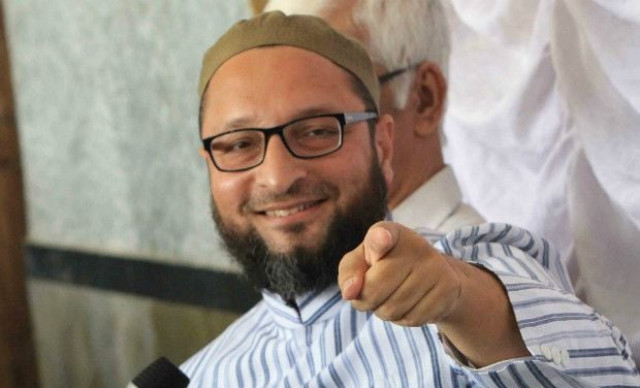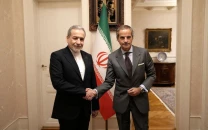Is India ready for a '21st Century Jinnah'?
Emerging Muslim politician in India stirs hope and fear

Asad uddain Owaisi. PHOTO: DECCANCHRONICLE
Owaisi, a third-term Member of Parliament from a small party in southern India, is seen as an inspirational leader who hopes to see a better future for the Muslims of India, where Hindu nationalist forces are on the rise in India.
Last October, nearly 60,000 Muslims congregated at a dusty parade ground in Aurangabad to hear Owaisi.
Amid chants of “the lion has come”, he took the podium and recited a short prayer before launching into a bold speech about the discrimination faced by Indian Muslims in finding jobs, accessing loans and encountering the police.
Read: India home to 180 million Muslims: Indian official
In his address, he told the youth to pray regularly and pursue education, adding, “This is our country as much as it is yours. We are not renters; we are also owners of this land. We should get our rights.”
Reveling fans climbed onto the stage to meet him, with many finding a messiah in him.
“I have never seen such a fearless leader before,” said Syed Jawad, a 22-year-old dairy shop owner who watched Owaisi in his city around 200 miles from Mumbai. “Owaisi is the new messiah for us.”
In an interview in New Delhi, he addressed Muslims’ lack of voice in India, saying: “Every community in India has progressed except Muslims.” The dropping numbers of Muslims in Parliament coincide with his concerns.
Read: Majority of Muslim women in India opposed to oral divorce: survey
Owaisi caused controversy by speaking for Muslim prisoners on death row, specifically Yaqub Memon, who was hanged for his alleged role in the 1993 Mumbai bombings, because he believes capital punishment has become a political tool. However, he continues to strive for justice for Indian Muslims.
“Call me provocative. Call me anti-national. But first, answer all the questions I am posing about discrimination and injustice,” he said.
Owaisi grew up in Hyderabad and is the son of a lawmaker.
Arshad Alam, assistant professor of sociology at Jawaharlal Nehru University in New Delhi, admires Owaisi and believes he has the traits of a good leader that the Muslim community of India requires but wonders if Owais will engage in politics for the harassed only or go further.
Owaisi’s critics say he could fragment the country’s fragile multi-religious social fabric.
“He is pandering to the Muslim feeling of insecurity,” said Ram Madhav, general secretary of the ruling Hindu nationalist Bharatiya Janata Party. “His politics [are] dangerous for India because it deepens the sense of alienation and separateness among Muslims.”
Madhav went on to say Owaisi “is trying to become the 21st century Jinnah,” a controversial comparison to Muhammad Ali Jinnah.
The article originally appeared on TheWashingtonPost


















COMMENTS
Comments are moderated and generally will be posted if they are on-topic and not abusive.
For more information, please see our Comments FAQ